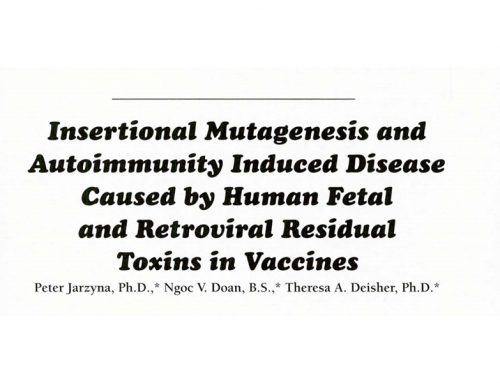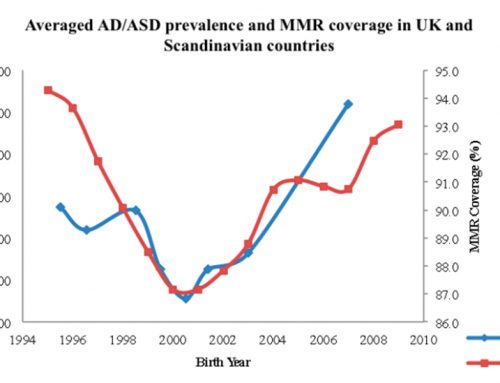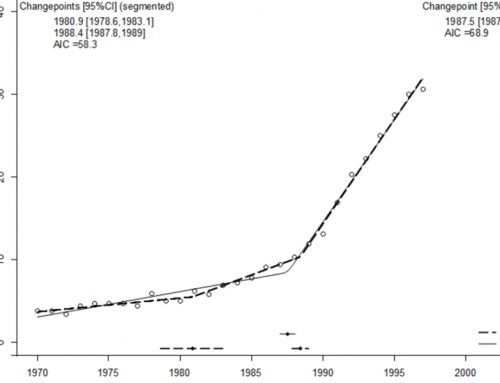Spontaneous Integration of Human DNA Fragments into Host Genome
Why this study matters!
A trio of recent publications in the journal NEURON reports the presence of hundreds of diverse de novo gene mutations indicating that autism spectrum disorder (ASD) may be a disease of genomic instability, with a significant environmental component. Altered double strand break formation and repair pathways (DSB) may be a commonality among the diverse genetic mutations that have been documented in ASD. US birth year change points in AD are apparent in 1980, 1988 and 1996, coinciding with the switch to or introduction of childhood vaccines contaminated with human endogenous retrovirus K (HERVK) and human fetal DNA fragments (6). We hypothesize that the HERVK and human fetal DNA contaminants could contribute to the genomic instability of ASD as demonstrated by de novo mutations.
Cell free DNA can be taken up by healthy cells via receptor mediated uptake or may spontaneously penetrate cell membranes that have altered permeability, for instance, during inflammatory reactions. Nuclear uptake of cell free DNA fragments is thought to provide a source for maintenance of DNA integrity during rescue of collapsed replication forks or base lesion repair. Spontaneous extracellular DNA uptake has also been exploited for gene therapy as well as for cellular gene correction (2,4,5,7,8, and 9). While free DNA uptake has been used advantageously, the process has also been associated with generation of mutations and chromosomal aberrations (3).
Vaccines manufactured using human fetal cells contain residual DNA fragments (50-500 bp) (Table I). It is possible that these contaminating fragments could be incorporated into a child’s genome and disrupt normal gene function, leading to autistic phenotypes. In this study we demonstrate foreign DNA uptake in human cells and genomic integration by incubating the cells with Cy3-labeled human Cot1 (placental) DNA fragments which represents contaminating residual human fetal DNA in vaccines.
Conclusion:
Not only damaged human cells, but also healthy human cells can take up foreign DNA spontaneously. Foreign human DNA taken up by human cells will be transported into nuclei and be integrated into host genome, which will cause phenotype change. Hence, residual human fetal DNA fragments in vaccine can be one of causes of autism spectrum disorder in children through vaccination. Vaccine must be safe without any human DNA contaminations or reactivated viruses, and must be produced in ethically approved manufacturing processes.



